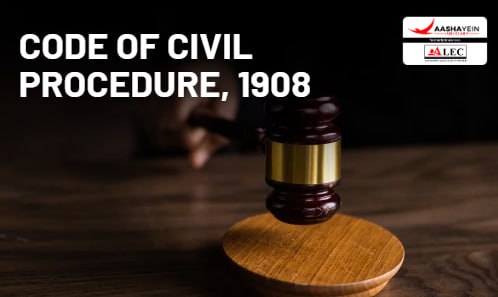When a legal dispute arises, the first crucial step is determining where the lawsuit should be filed. The place of suing refers to the appropriate court where a case must be initiated. This ensures that the case is heard by a court with the right jurisdiction, leading to an efficient and fair resolution. The Code of Civil Procedure (CPC) provides clear guidelines on where legal actions should be instituted, preventing unnecessary delays and improper filings.
Court of Proper Jurisdiction (Section 15 of CPC)
Under Section 15 of the CPC, every lawsuit should be filed in the court of the lowest grade that is competent to handle it. This provision ensures that higher courts are not burdened with cases that can be resolved at a lower level, allowing them to focus on more complex matters.
Section 16: Where to File a Lawsuit Involving Immovable and Movable Property
This section specifies that cases concerning immovable property (real estate) must be filed in the court where the property is located. These cases include:
- Recovering property
- Partition of property
- Mortgage-related claims
- Disputes over property rights or interests.
- Compensation claims for damage to immovable property.
- Recovering movable property under attachment or seizure.
You can also read the latest judgment by visiting [Latest Judgment].
For more information, visit [Aashayein Enquiry Section]
Key Exception:
If the lawsuit seeks a remedy against property held by the defendant, and that remedy can be obtained solely through the defendant's compliance, the case can be filed:
- In the court where the property is located, or
- In the court where the defendant lives, works, or conducts business.
Judicial Interpretations:
- Anand Bazaar Patrika v. Biswanath Prasad: A suit for specific performance of a sale contract must be filed in the court where the property is located, not where the cause of action arose.
Section 17: When Property is in Different Court Jurisdictions
If a case involves immovable property spread across multiple court jurisdictions, the plaintiff can file in any court where part of the property is located. On condition that the chosen court must have the authority to handle the entire claim based on its monetary limit.
Section 18: What Happens When Jurisdiction is Uncertain?
This section deals with situations where it is unclear which court's jurisdiction a property falls under.
Two Main Provisions:
- Court Declaration: If multiple courts may have jurisdiction and uncertainty exists, any of those courts can record a statement acknowledging the confusion and proceed with the case. The court’s decision is considered valid.
- Objections in Appeals: If a case is later challenged on jurisdictional grounds, an appellate court cannot reject it unless:
- At the time of filing, there was no reasonable doubt about jurisdiction.
- The error led to a failure of justice.
Section 19: Suits for Compensation for Wrongs to Person or Movables
This section explains where a person can file a lawsuit when they seek compensation for harm caused to their body or to their movable property.
Key Points
- If the wrongful act happened in one place, but the person being sued (defendant) lives or works in another place, the person filing the suit (plaintiff) has a choice:
- They can file the case where the wrongful act happened.
- Or they can file it where the defendant lives, works, or conducts business.
Section 20: Other suits to be instituted where defendants reside or cause of action arises
This section applies to cases that do not fall under specific jurisdiction rules. It determines where a lawsuit should be filed.
Key Points:
A lawsuit must be filed in a court within whose jurisdiction:
- The defendant (or all defendants, if there is more than one) resides, works, or does business at the time the lawsuit is started.
- If there are multiple defendants, and at least one of them meets the above criteria, the suit can be filed there if either:
- The court gives permission, or
- The other defendants do not object.
- The lawsuit can also be filed where the cause of action (the event leading to the dispute) took place, either fully or partially.
- Special Rule for Corporations: A company is considered to be doing business at:
- Its main office.
- Any branch office, if the dispute is related to activities at that branch.
Judicial Interpretation
- ABC Laminart Pvt. Ltd. vs. A.P. Agencies
In contractual disputes, the jurisdiction of the court is determined by either the place where the contract was signed or where the cause of action, such as a breach or failure of delivery, occurred. If both parties agree to confer exclusive jurisdiction to a particular court, such an agreement is legally valid only if it is explicitly clear, precise, and unambiguous. Additionally, the clause must not contravene Sections 23 and 28 of the Indian Contract Act, which prohibit unlawful agreements and restrictions on legal proceedings.

